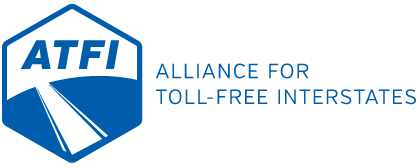By The Columbia Missourian
Like the federal government and its 49 sister states, Missouri is trying to find sustainable new ways to fund road construction and maintenance at a time when they are costlier than ever.
All that is well and good. What is not is the flawed notion that placing tolls on the toll-free Interstate 70 is a viable way to raise road revenue, as was suggested by the Show-Me Institute’s Joseph Miller in a Sept. 2 Columbia Missourian guest column.
Missouri citizens and leaders have wisely decided they do not want tolls on I-70, or other roadways, for that matter. The state has not seriously moved forward in pursuing tolls on I-70 since 2005, when the federal government admitted the highway into an exclusive tolling pilot program.
More recently, Missouri lawmakers sought to enact a statewide prohibition on new toll roads within legislation designed to generate new road revenue.
Legislators pursued the toll ban because they realized what some other states discovered too late: Placing new tolls on paid-for roads is a recipe for economic hardship on people, business and government.
Indeed, no state has successfully tolled an existing interstate under the federal pilot program. And states such as Virginia and North Carolina that considered it went through costly evaluations before realizing it would be an economic disaster.
Tolling existing interstates is double taxation because it charges people for using roads for which their tax dollars have already paid.
New tolls can put stress on family budgets, increase commuting costs and negatively impact consumer behavior in ways that hamper local economies.
Tolls can divert interstate traffic onto local roads ill-equipped to handle heavy vehicle volume. That can imperil public safety by delaying police, fire and rescue workers from responding to emergencies. And it can lead to premature road deterioration, foisting repair costs on local governments that inevitably will be passed on to taxpayers.
Despite available evidence on tolling’s ills, Mr. Miller posits that placing new fees on a currently toll-free interstate is logical because commercial vehicles would be charged more for traversing the highway – a myopic view of how tolling actually works.
He cites the Ohio, Pennsylvania and Kansas turnpikes as roads where commercial traffic accounts for up to one-fifth of total vehicles, and pays at least one-third of the total tolls on those three turnpikes.
That analysis glaringly overlooks non-commercial traffic on those turnpikes. If 20 percent of Ohio Turnpike users are commercial vehicles, then simple math tells us the remaining 80 percent of the users and toll payers are everyday drivers.
Those kinds of folks in Missouri would shoulder the burden of hypothetical I-70 tolls favored by Mr. Miller, who outright ignores their downstream impact. Ordinary Missouri commuters would pay more to travel an I-70 that now is toll-free, and in Mr. Miller’s ideal scenario, they could also face higher prices at the register for goods and services due to the increased commercial shipping cost of getting products to market.
That’s hardly an economic prosperity formula for families on a budget and businesses enduring a slow recovery from recession.
Julian Walker is a spokesman for the Alliance for Toll-Free Interstates.

